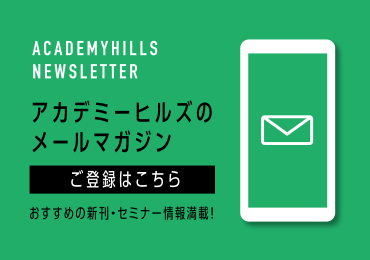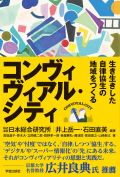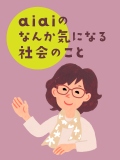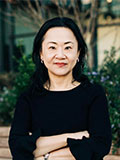六本木ヒルズライブラリー
Did you enjoy chatting in English ?
英語で語ろう友の会 2015年4月の定例会
メンバーズ・コミュニティ
更新日 : 2015年07月06日
(月)
2015年4月3日(金)19:00~21:00
We held English chatting society after 7 months’ intervals since last September. I am happy to say that seven people attended our chatting community, though I gave them a short notice through the library office.
We introduced ourselves each other before our discussion, as we usually did in the past. As an icebreaker, I asked each participant whether he/she suffers with hay fever.
As the expression sounds very colloquial, some of the participants couldn’t figure out what hay fever meant. However, someone understood “pollinosis,” which is a technical term in medicine. I got the feeling that it would be better for us to understand some colloquial words in a daily conversation, because we can communicate more easily with each other.
First we talked about some language issues concerning English; we dealt with an article discussing why many senior high school students don’t care for English, though they start learning the language in elementary schools. They enjoy playing games and singing songs with native speakers of English in the classrooms, but when they become higher grades in high schools they seem to lose their interest on studying English earnestly because they have to prepare for the entrance exams. However, there is no denying the fact that teachers of English and the Ministry of education work out some effective plans to let students like English. It goes without saying that our future lies in their competency of the language, because English has become a global language.
Second we discussed the significance of journalism. We read the story that a journalist who comes from Niigata Prefecture had his passport confiscated by the police and an official of the foreign ministry. The journalist whose name is Yamamoto reiterated that he really wanted to visit Syria to let people know what’s going on in the refugees’ camp. It was obvious that he had no plan to enter the dangerous zone to get the story. Many attendants of our community felt sympathetic with his behavior and words. We would like to give him much credit for his courageous act as a journalist.
Third, we talked a bit about the struggle of Otsuka family. We generally agreed with Kumiko’s innovative style of management, because her father’s out-of-date management doesn’t get along with the times. The open stores that are accessible to any types of visitors go well with the demands of customers instead of her father’s membership system of the stores. Kumiko knows very well about what the corporate governance means to her.
Finally we had a heated debate about Ayako Sono’s remark about racial segregation in South Africa. Mrs. Sono wrote her honest feelings in a column of Sankei Shimbun that different races had better live separate in society, judging from her staying experience in the country. Her remark reminds us of some thoughtless words by the former ministers or politicians of Japan in the past. We have to be very sensitive with racial issues, because we are members of the global community. We always have to be considerate of the feelings of others. There is a valuable lesson for us as humans to learn from the story.
Written by Junichi Saito
We introduced ourselves each other before our discussion, as we usually did in the past. As an icebreaker, I asked each participant whether he/she suffers with hay fever.
As the expression sounds very colloquial, some of the participants couldn’t figure out what hay fever meant. However, someone understood “pollinosis,” which is a technical term in medicine. I got the feeling that it would be better for us to understand some colloquial words in a daily conversation, because we can communicate more easily with each other.
First we talked about some language issues concerning English; we dealt with an article discussing why many senior high school students don’t care for English, though they start learning the language in elementary schools. They enjoy playing games and singing songs with native speakers of English in the classrooms, but when they become higher grades in high schools they seem to lose their interest on studying English earnestly because they have to prepare for the entrance exams. However, there is no denying the fact that teachers of English and the Ministry of education work out some effective plans to let students like English. It goes without saying that our future lies in their competency of the language, because English has become a global language.
Second we discussed the significance of journalism. We read the story that a journalist who comes from Niigata Prefecture had his passport confiscated by the police and an official of the foreign ministry. The journalist whose name is Yamamoto reiterated that he really wanted to visit Syria to let people know what’s going on in the refugees’ camp. It was obvious that he had no plan to enter the dangerous zone to get the story. Many attendants of our community felt sympathetic with his behavior and words. We would like to give him much credit for his courageous act as a journalist.
Third, we talked a bit about the struggle of Otsuka family. We generally agreed with Kumiko’s innovative style of management, because her father’s out-of-date management doesn’t get along with the times. The open stores that are accessible to any types of visitors go well with the demands of customers instead of her father’s membership system of the stores. Kumiko knows very well about what the corporate governance means to her.
Finally we had a heated debate about Ayako Sono’s remark about racial segregation in South Africa. Mrs. Sono wrote her honest feelings in a column of Sankei Shimbun that different races had better live separate in society, judging from her staying experience in the country. Her remark reminds us of some thoughtless words by the former ministers or politicians of Japan in the past. We have to be very sensitive with racial issues, because we are members of the global community. We always have to be considerate of the feelings of others. There is a valuable lesson for us as humans to learn from the story.
Written by Junichi Saito
注目の記事
-
04月22日 (火) 更新
本から「いま」が見えてくる新刊10選 ~2025年4月~
毎日出版されるたくさんの本を眺めていると、世の中の"いま"が見えてくる。新刊書籍の中から、今知っておきたいテーマを扱った10冊の本を紹介しま....
-
04月22日 (火) 更新
aiaiのなんか気になる社会のこと
「aiaiのなんか気になる社会のこと」は、「社会課題」よりもっと手前の「ちょっと気になる社会のこと」に目を向けながら、一市民としての視点や選....
-
04月22日 (火) 更新
米大学卒業式の注目スピーチから得られる学び<イベントレポート>
ニューヨークを拠点に地政学リスク分析の分野でご活躍され、米国社会、日本社会を鋭く分析されているライターの渡邊裕子さんに、アメリカの大学の卒業....
現在募集中のイベント
-
開催日 : 05月19日 (月) 12:30~14:15
ジェラルド・カーティス氏 特別講演「これからの民主主義」
コロンビア大学政治学名誉教授のジェラルド・カーティス氏をお迎えし、トランプ政権の今後の展望と、これからの民主主義の可能性についてご講演いただ....














